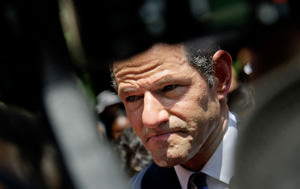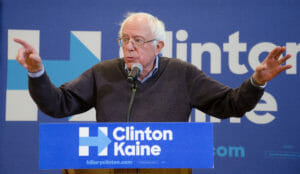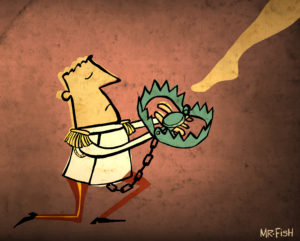Why They Hate Eliot Spitzer
Corporations have revved their engines back up for round two of the smear campaign against Eliot Spitzer, the former governor of New York who has announced that he will run for New York City comptroller.
By Thomas Hedges, Center for Study of Responsive Law
Corporations have revved their engines back up for round two of the smear campaign against Eliot Spitzer, the former governor of New York who has announced that he will run for New York City comptroller. With headlines such as “Here We Ho Again” and “Lust for Power,” news outlets are already pigeonholing Spitzer as a depraved sex addict, more loathsome than the average politician gone wrong.
In the last couple of decades, there have been many scandals in politics, often sex-related. Remember Anthony Weiner, Mark Sanford, Chuck Robb, Newt Gingrich, Barney Frank, David Vitter, Ted Kennedy, Ken Calvert, Bill Clinton and so on? But not every politician faces the same kind of criticism that continues to follow Spitzer. Indeed, the careers of Frank, Calvert and Vitter, all of whom had sex with prostitutes, were largely uninterrupted.
Spitzer had enemies not because of his sex life, but because of the hard-line approach he took toward financial institutions beginning in 1998 as New York’s attorney general. He turned a position that, for years, was not particularly forceful into one that frightened Wall Street and held companies accountable for corruption that had been largely ignored or settled with meager plea deals.
In 2002, Spitzer sued several investment banks alleging they had inflated stock prices. When executives tried to sweep the issue aside and keep the information secret — their common practices at the time — the attorney general refused.
“I said no,” Spitzer recounted in Alex Gibney’s 2010 film “Client 9: The Rise and Fall of Eliot Spitzer,” “because my job as attorney general is to change the system so that it’s fair and honest. And if we seal the evidence and you pay with a check and we don’t change the system, I’m basically being bought off.”
In a state of amnesia, New York City Council Speaker Christine C. Quinn, a Democrat, was quoted July 8 by The New York Times saying, “the question with both Anthony Weiner and Eliot Spitzer is, what have they been doing to earn a second chance?”
Quinn, like most Americans, has eaten up the story that the corporate media fed to the public. She forgets about the other politicians listed above, some of whom are still serving as senators and House members. And she has also conveniently forgotten that Spitzer continued to rail against big banks that, months after his resignation, would bring the economy close to a halt.
It was this unwavering conviction that prompted Wall Street to scrutinize every aspect of Spitzer’s life. When a prostitution ring called the Emperors Club was suddenly uncovered, it was outsiders who pushed for an investigation of “client 9,” even though johns, the New York Police Department acknowledged, are usually not prosecuted in such cases.
Many people contend that “Eliot Spitzer brought himself down,” Gibney said in an interview about his documentary. “Actually, there were other forces at work that, though he was the one who made himself vulnerable, were there very much to use their power to make sure he went down as hard as possible, so that his fall was a kind of freefall. And he would never be able to be picked up again.”
Gibney’s “Client 9” cleverly uses the scandal to entice Wall Street players such as ex-New York Stock Exchange Director Ken Langone and former AIG Chief Executive Maurice Greenberg to sit down and talk about — not the scandal itself — but what led up to it. The film becomes a kind of mystery-thriller and exposes the lies and tricks that top executives use to destroy people like Spitzer. The film suggests that it was Roger Stone, a wealthy Wall Street playboy with a tattoo of Richard Nixon on his back, who got the scoop on Spitzer’s sexual affairs and relayed the news, probably to Langone.
“You know we all have our private hells,” an ecstatic Langone told a reporter after the Spitzer scandal broke in 2008. “I hope his private hell is hotter than anybody else’s.”
This article was made possible by the Center for Study of Responsive Law.
Your support matters…Independent journalism is under threat and overshadowed by heavily funded mainstream media.
You can help level the playing field. Become a member.
Your tax-deductible contribution keeps us digging beneath the headlines to give you thought-provoking, investigative reporting and analysis that unearths what's really happening- without compromise.
Give today to support our courageous, independent journalists.




You need to be a supporter to comment.
There are currently no responses to this article.
Be the first to respond.